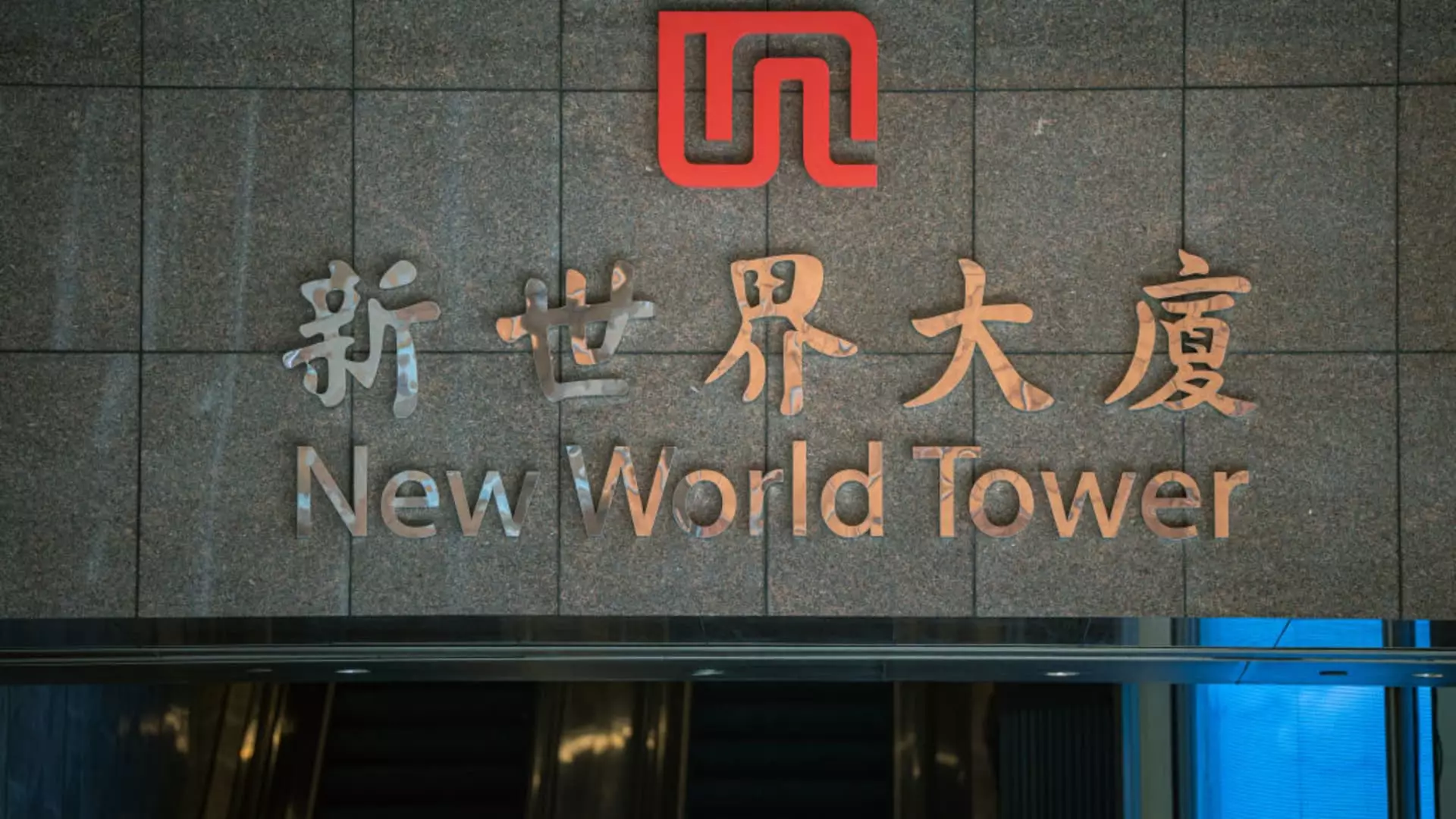The recent resignation of Adrian Cheng from New World Development, a prominent player in Hong Kong’s property sector, has sent shockwaves through the market, resulting in a notable 23% surge in the company’s stock price. This drastic increase came after trading resumed on Friday, following a suspension intended to prepare investors for significant announcements regarding leadership changes. Cheng’s exit is particularly noteworthy as he belongs to the founding family of the company and has been instrumental in its direction and strategy. His decision to step down in favor of focusing on public service highlights a broader trend in corporate governance, emphasizing the importance of effective leadership over familial ties in managing firms.
In a striking move, Eric Ma Siu-Cheung, formerly the Chief Operating Officer, has been appointed as the new CEO. This decision marks a pivotal moment for New World Development as it breaks from traditional familial leadership, paving the way for more meritocratic management approaches. This transition speaks volumes about the evolving landscape of corporate culture in Hong Kong, where reliance on familial lineage has often overshadowed the need for professional expertise. The input from Alicia Garcia-Herrero, chief economist for Asia Pacific at Natixis, is particularly illuminating. She argues that effective corporate governance is essential, especially during turbulent market conditions. The implication here is clear: companies must prioritize skilled leadership to navigate the complexities of modern economic challenges.
Despite the positive market reaction, New World Development is not without its struggles. The developer anticipates a staggering loss attributable to shareholders, expected to fall between HK $19 billion and HK $20 billion for the fiscal year ending in June. Various factors, including declining sales, investment losses, and rising impairment charges, have contributed to these financial woes. The broader context reveals a persistent slump in the property sector, both in Hong Kong and mainland China, indicating systemic issues rather than isolated incidents. Moreover, New World Development’s burden of elevated debt levels exemplifies the precarious state of many developers in the region.
Interestingly, the rally in New World’s stock has coincided with broader movements in Hong Kong and Chinese equities, largely attributed to recent stimulus measures from China’s central bank. The economic landscape is being reshaped by effective fiscal and monetary policy responses aimed at curbing the prolonged decline in the real estate market. The Chinese government’s commitment to enhance support for various sectors, including job creation and tackling demographic challenges, provides a hopeful backdrop for developers struggling in these troubled times.
The events surrounding New World Development encapsulate critical themes in corporate governance and market dynamics. As the appointment of Eric Ma heralds a shift towards a more professionalized management approach, it reflects a potential turning point in how family-owned businesses operate in Hong Kong. With effective leadership and supportive economic policies, there is a real opportunity for revitalization in the property sector, fostering confidence among investors and reshaping the future of corporate governance in financial markets. The need for astute governance has never been clearer, and companies must adapt to thrive in increasingly unpredictable environments.


Leave a Reply